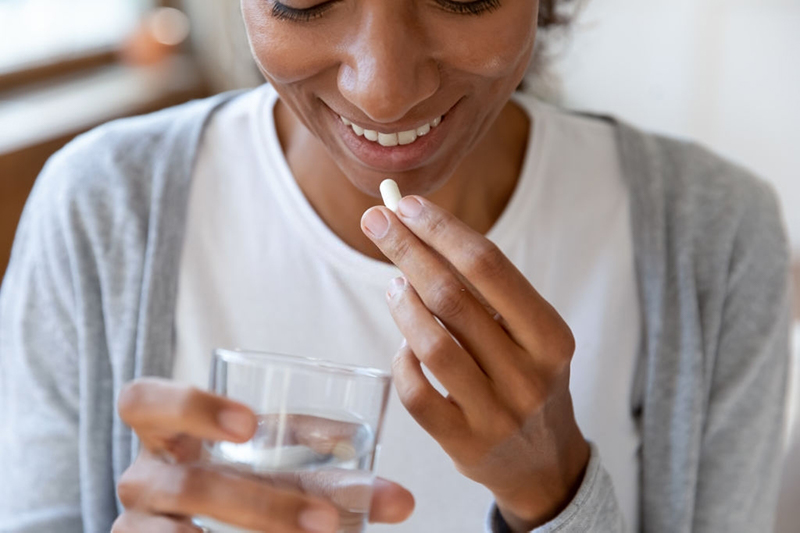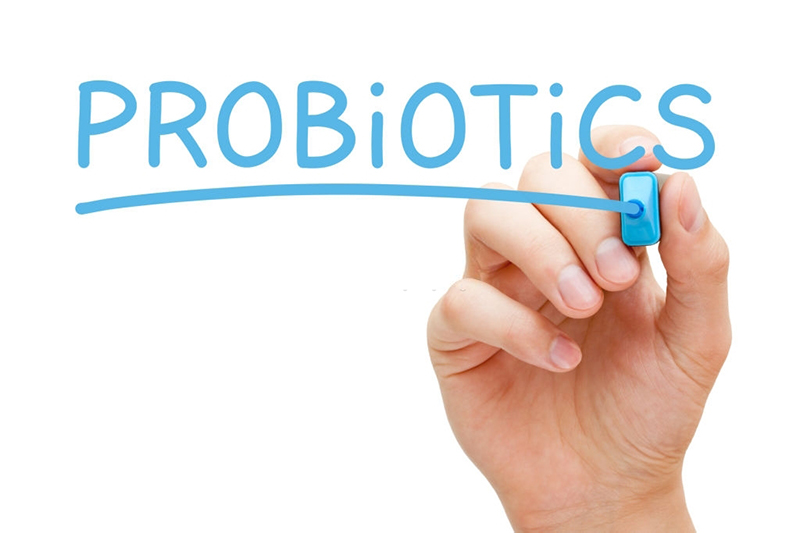While specific bacteria may aid in the treatment of certain digestive illnesses, they have no recognized benefits for healthy people. probioticseverything.com probiotic health benefits
Any grocery shop will most certainly have many “probiotic” items filled with so-called beneficial bacteria that claim to heal everything from constipation to obesity to depression. Consumers can now buy probiotic capsules and pills, fruit juices, cereals, sausages, biscuits, chocolates, granola bars, and pet food in addition to goods usually made with live bacterial cultures (such as yogurt and other fermented dairy products). Indeed, probiotics’ popularity has soared in recent years, to the point where the bacteria are now found in cosmetics and mattresses.
However, a closer examination of the research behind microbe-based treatments reveals that the majority of probiotics’ health claims are unfounded. To present, the majority of studies have failed to show any benefits in people who are already healthy. Only those with a few specific digestive diseases appear to benefit from the bacterium. “There is no proof that taking probiotics benefits people with normal gastrointestinal tracts,” says Matthew Ciorba, a gastroenterologist at Washington University in St. Louis. “I wouldn’t recommend them if you’re not in any kind of trouble.” Microbiologist Emma Allen-Vercoe of the University of Guelph in Ontario agrees. “The assertions that are made are grossly overblown,” she says for the most part.
This pattern has previously played out, most notably with vitamin supplements, which decades of research has proved to be utterly unneeded for most adults and, in certain circumstances, harmful, with greater incidences of lung, breast, and prostate cancer. But that hasn’t prevented marketers from promoting another another diet fad. Between 2007 and 2012, the number of adults in the United States using probiotics or its cousins, prebiotics (usually nondigestible fibers that favor the formation of gut flora) more than quadrupled, from 865,000 to almost four million, according to a National Institutes of Health survey. Grand View Research, a San Francisco-based business consulting organization, believes that the worldwide probiotics industry exceeds $35 billion in 2015 and would reach $66 billion by 2024. probioticseverything.com probiotic health benefits
The surge in scientific and public interest in the human microbiome, or the overlapping ecosystems of bacteria and other microbes present throughout the body, is fueling the probiotics craze. According to the most recent estimate, the human gastrointestinal tract includes approximately 39 trillion bacteria, the majority of which reside in the large intestine. Many of these commensal microorganisms have been proven to be beneficial to human health over the last 15 years by studies. They work together to keep hazardous microbes at bay, break down fibrous meals into more easily digestible components, and generate vitamins like K and B12.
For a few of reasons, the assumption that ingesting probiotics can improve the ability of already well-functioning native bacteria to support overall health seems dubious. Probiotics manufacturers typically choose specific bacterial strains for their products because they know how to produce them in big numbers, not because they are adapted to the human stomach or have been shown to promote health. The strains of Bifidobacterium or Lactobacillus found in many yogurts and tablets may not be the same as those that can survive the very acidic environment of the human stomach and colonize the gut from there. probioticseverything.com probiotic health benefits
Even if some of the bacteria in a probiotic survived and multiplied in the intestine, there would be far too few of them to significantly alter the internal ecosystem’s composition. A normal serving of yogurt or a microbe-filled pill comprises between 100 million and a few hundred billion bacteria, compared to tens of trillions in the human gut. Last year, a group of researchers from the University of Copenhagen published a review of seven randomized, placebo-controlled trials (the most scientifically rigorous types of studies researchers can conduct) to see if probiotic supplements, such as biscuits, milk-based drinks, and capsules, alter the diversity of bacteria in feces. Only one trial, with 34 healthy volunteers, indicated a statistically significant difference, but there was no evidence that it had any clinical value. “A probiotic is still a drop in the bucket,” explains Shira Doron, a Tufts Medical Center infectious disease expert. “The gut harbors orders of magnitude more microorganisms than the rest of the body.” probioticseverything.com probiotic health benefits

Despite a growing belief that probiotics provide no benefit to people who are already healthy, studies have shown that they can help persons with specific diseases. probioticseverything.com probiotic health benefits
For example, in the last five years, multiple meta-analyses of dozens of research have indicated that probiotics may help reduce some frequent antibiotic adverse effects. When doctors administer these antibiotics, they know they risk wiping out entire communities of helpful bacteria in the bowel, as well as the problem-causing microorganisms they’re seeking to eradicate. To reestablish a healthy microbiome, the body usually just needs a few bacteria from the environment. However, the emptied niches can sometimes be filled with dangerous bacteria that release toxins, producing gut irritation and diarrhea. Taking yogurt or other probiotics, especially those containing Lactobacillus, during and after an antibiotic course appears to reduce the risk of developing these opportunistic infections. probioticseverything.com probiotic health benefits
Probiotics may be especially beneficial in a hospital’s newborn intensive care unit, according to a 2014 study by Cochrane—an independent network of specialists who serve as rigorous arbiters of medical research. The inclusion of helpful bacteria to a feeding regimen appears to lessen the risk of necrotizing enterocolitis, a severe, poorly understood, and frequently fatal gut disease that mostly affects preterm newborns, particularly the smallest and most fragile. Many cases of the condition, according to researchers, start with an opportunistic bacterial infection in an infant’s still-developing bowel. As the sickness advances, gut tissue becomes progressively inflamed and often begins to die, causing the intestine to rupture and pathogenic microorganisms to proliferate to lethal levels in the abdominal cavity. According to researchers, 12 percent of preterm children weighing less than 3.3 pounds will get necrotizing enterocolitis, with 30% of them dying. Antibiotics, intravenous nutrition, and surgery to remove sick and dead tissue are all part of standard treatment. Probiotics are thought to prevent the condition by increasing the quantity of helpful bacteria in the gut, which may help to keep the harmful bacteria at bay.
Irritable bowel syndrome, a chronic illness characterized by abdominal pain, bloating, and recurrent diarrhea or constipation, appears to be helped by probiotics (or a mix of the two). Probiotics may help to relieve the symptoms of irritable bowel syndrome in some cases, according to a 2014 review of more than 30 studies published in the American Journal of Gastroenterology by an international team of researchers. The reasons for this are unclear, but it’s possible that they inhibit the growth of harmful microbes. However, the researchers concluded that they lacked sufficient data to endorse any specific bacterium strains. A successful study on a single strain of a particular species of bacteria should not be interpreted as proof that all probiotics function equally well, according to microbiologists. “Bacterial strains are genetically distinct from one another, and everyone has a unique gut microbiota,” explains Allen-Vercoe. “There will very certainly never be a probiotic that fits everyone.” probioticseverything.com probiotic health benefits
But what if researchers could create probiotics that were tailored to the needs of specific people? Personalized probiotics, according to several researchers, are the most promising treatment option for patients with impaired gut microbiomes. Jens Walter of the University of Alberta and his colleagues published a study last year that hints at this possible future. The researchers wanted to examine what it would take to colonize the intestines of 23 volunteers with bacteria from a probiotic. They chose a strain of Bifidobacterium longum that had previously been shown to survive in the human intestine in experiments. For two weeks, the volunteers were given either a drink containing 10 billion live B. longum bacteria or a placebo in the form of maltodextrin, a glucose-based food additive. Participants who did not ingest the placebo had higher than normal levels of B. longum in their feces on a regular basis.
However, these bacterial levels lingered in seven persons for more than five months after treatment ceased. “We didn’t think they’d last more than a few weeks,” Walter adds. Following up on the results, it was discovered that these seven patients had started the trial with lower levels of B. longum to begin with. In other words, the probiotic filled a void in their gut ecosystems. That’s the kind of understanding clinicians require in order to develop and promote more effective probiotics. If a doctor detects an undersized population of a helpful microbe in a patient with severe diarrhea, for example, providing the missing strain should improve the chances of a successful therapy. probioticseverything.com probiotic health benefits
“Taking an ecological perspective is crucial,” Walter explains. “We need to consider which microorganisms have the necessary adaptations to live in a specific gut ecology.” To put it another way, treatments for microbe-related diseases are most effective when they work with, rather than against, the human body’s countless microscopic residents.

